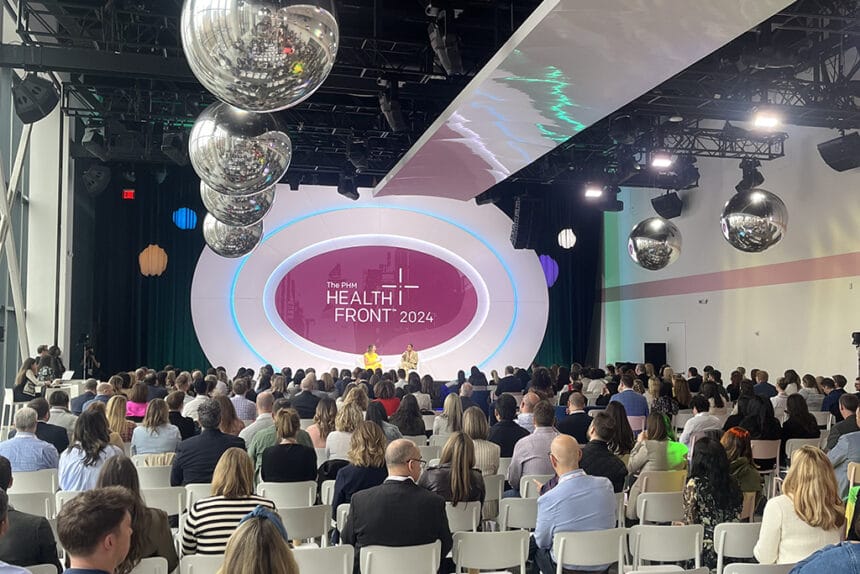It’s pretty well known that Gabrielle Union-Wade is a remarkably transparent celebrity who is fully willing to discuss all aspects of her life — both good and bad.
She’s also unafraid, especially when it comes to challenging the most common misconceptions around healthcare and encouraging patients to advocate for themselves.
Similar to Brooke Shields, Union-Wade tackled the issues of aging and shame in women’s health as part of a fireside chat during the second day of the 2024 PHM HealthFront.
In speaking with PHM President Andrea Palmer, the actress discussed the challenges faced by the next generation of women when it comes to understanding their respective health journeys and receiving the care they need.
She also touched on the shame surrounding menopause and perimenopause — which she was diagnosed with in her late 30s — as well as advocating for patients to have more open and easy conversations with healthcare professionals (HCP).
Make women patients feel seen
Several times during the discussion with Palmer, Union-Wade rejected the cultural taboos associated with women’s health and the aging process, saying that she wants to feel seen by both HCPs and marketers.
Having been through several setbacks in her experiences with healthcare — from experiences heavier, longer periods as a young girl through multiple rounds of IVF and miscarriages — she said being her own cheerleader and advocate has served her well.
Where brands have an opportunity to assist the patients they cater to, she added, is by filling in the gaps in health information to provide patients with reliable, timely resources.
That extends to women as they age, which she related from her own experience as being written off by marketers and brands even though this population has its own unique, relevant challenges that can be addressed.
“I don’t think that suffering is a natural part of aging,” she said. “It doesn’t have to be that way when you start communicating and advocating for yourself.”
Union-Wade spoke about her recent partnership with Canadian intimate apparel brand Knix, saying that she seeks to use her platform to raise the profile of products that she uses and those that can benefit others.
In the case of Knix, she said its offerings help destigmatize menstruation, especially for young girls, where often there is a lack of understanding, conversation or resources for an inevitable part of life.
A message to marketers
Additionally, she offered pointed words for marketers and the brands they represent, telling them that having products that meet a person’s needs “should not be aspirational.” As an owner of multiple businesses herself — including skincare and haircare brands — she said she’s not interested in pricing out consumers from the products they need.
She said health and wellness products should be affordable and accessible for all, particularly those that come from underrepresented communities. How brands can do this, she suggested, is by making sure their advertising meets people where they are at, especially if they have a solution that works.
Union-Wade said brands have long focused on reaching HCPs but need to go beyond that target and work with consumers directly to overcome the healthcare system’s wide-ranging inefficiencies. From her perspective, the way to do that is by leveraging the copious amounts of data they have available.
“Between the doctors, between the advertising, lean into the data that is widely available about where your audience is paying attention, utilize that and meet people where they’re at,” she said. “[Think about] paid ads on social media, which a lot of people don’t think is helpful but it’s helpful. That’s how we see it on our feeds. I would examine every resource available to you to make sure that the potential customers you have are getting the message and know what you’re offering.”







